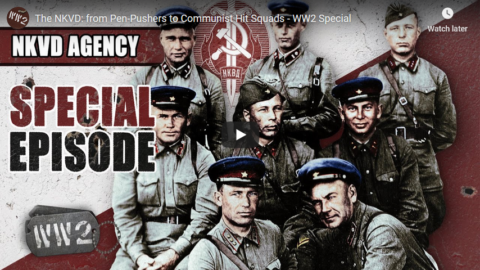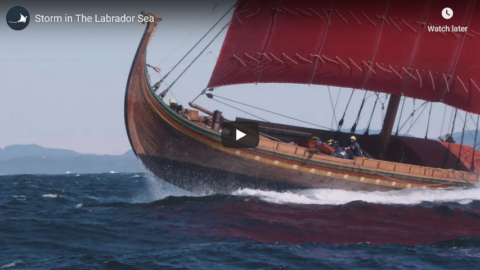World War Two
Published 15 Dec 2020The NKVD started out as your regular old Ministry of the Interior. But over time, they grew out to a hugely influential and highly lethal weapon for some of the Soviet Union’s leaders.
Join us on Patreon: https://www.patreon.com/TimeGhostHistory
Or join The TimeGhost Army directly at: https://timeghost.tvFollow WW2 day by day on Instagram @ww2_day_by_day – https://www.instagram.com/ww2_day_by_day
Between 2 Wars: https://www.youtube.com/playlist?list…
Source list: http://bit.ly/WW2sourcesHosted by: Spartacus Olsson
Written by: Joram Appel and Spartacus Olsson
Director: Astrid Deinhard
Producers: Astrid Deinhard and Spartacus Olsson
Executive Producers: Astrid Deinhard, Indy Neidell, Spartacus Olsson, Bodo Rittenauer
Creative Producer: Maria Kyhle
Post-Production Director: Wieke Kapteijns
Research by: Joram Appel
Edited by: Miki Cackowski
Sound design: Marek Kamiński
Map animations: Eastory (https://www.youtube.com/c/eastory)Colorizations by:
Klimbim – https://www.flickr.com/photos/2215569…
Mikołaj Uchman
Julius Jääskeläinen – https://www.facebook.com/JJcolorization/
Dememorabilia – https://www.instagram.com/dememorabilia/Sources:
Picture of Lavrentiy Beria in court, courtesy of Фотограф – Ист.доки https://commons.wikimedia.org/wiki/Fi…
Yad Vashem 1019-2, 143EO1, 55AO6
IWM HU 106212
USHMM
I.M. Bondarenko
from the Noun Project: border police by IcoLabs, fire building by dDara, Police by Cuputo, Skull by Muhamad UlumSoundtracks from the Epidemic Sound:
Reynard Seidel – “Deflection”
Johannes Bornlof – “Deviation In Time”
Farrell Wooten – “Blunt Object”
Andreas Jamsheree – “Guilty Shadows 4”
Fluow – “Endlessness”
Johannes Bornlof – “The Inspector 4”
Gunnar Johnsen – “Not Safe Yet”Archive by Screenocean/Reuters https://www.screenocean.com.
A TimeGhost chronological documentary produced by OnLion Entertainment GmbH.
From the comments:
World War Two
2 hours ago
We have been talking about the NKVD a lot in our War Against Humanity episodes and in several Between Two Wars episodes. If you found this video to be interesting, I can highly recommend you try our B2W episode on the Great Terror and Military Purges in 1938. It provides some crucial context that we couldn’t expand on in this special episode. You can find it right here: https://youtu.be/MNnK0LAoyMo
Cheers,
JoramOther videos about the NKVD we mentioned in this special are:
– War Against Humanity episode covering the Katyn Massacre: https://youtu.be/gd5YhhNcC44
– War Against Humanity episode covering the Great Prison Massacre: https://youtu.be/kykPusygzOw
– Biography episode on Richard Sorge: https://youtu.be/fn9NyRfbSOo






